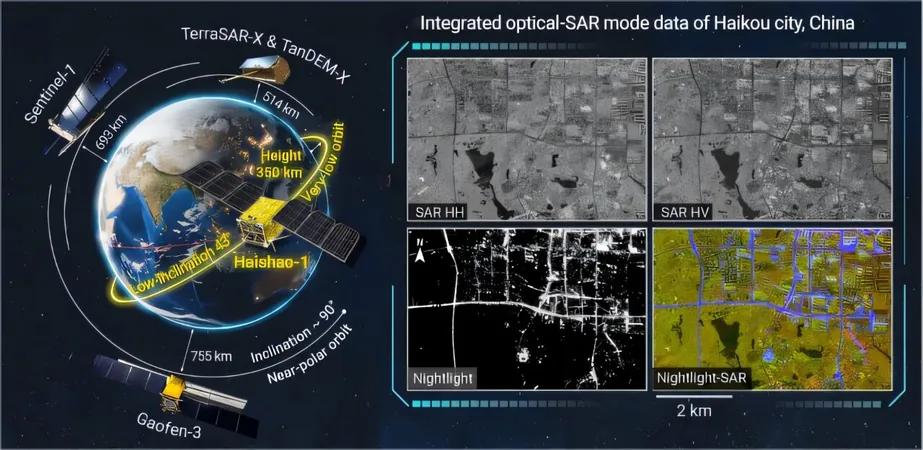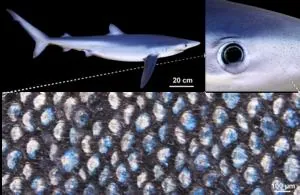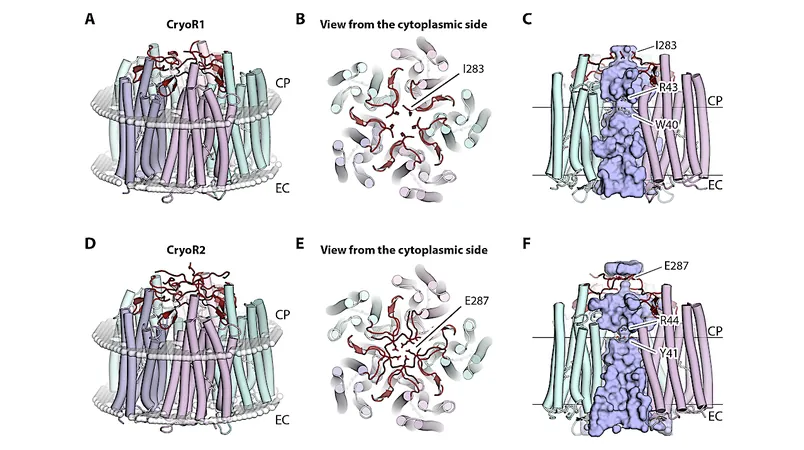
Unveiling a New Law of Nature: The Search for Alien Life and the Mystery of Complexity
2025-06-08
Author: Liam
The Enigmatic Fermi Paradox Revisited
In 1950, renowned physicist Enrico Fermi sparked a debate that still resonates today: If intelligent alien civilizations exist, why haven’t we found them? This question, known as Fermi’s Paradox, has led to various theories. Some suggest that advanced alien societies self-destruct. Others argue that intelligent life itself is a rarity and that we may be an extraordinary anomaly in the cosmos.
A Revolutionary Proposal: Complexity Becomes Inevitable
Challenging this bleak perspective, a team of researchers has introduced a groundbreaking idea—a new law of nature stating that complexity in the universe naturally increases over time, akin to the second law of thermodynamics, which governs rising entropy and disorder. If this idea holds true, it implies that complex, intelligent life could be far more common than we think.
Evolution: A Universal Principle?
The researchers, including mineralogist Robert Hazen and astrobiologist Michael Wong from the Carnegie Institution, assert that evolution isn’t merely a biological anomaly but a universal principle driving the complexity of all entities in the universe. Living organisms might be a specific manifestation of a broader dynamic that selects for systems rich in functional information.
Controversy Sparks Debate Among Scientists
This hypothesis has ignited passionate discussions. Some scientists praise it as a potential framework for understanding fundamental aspects of nature, arguing that evolution introduces new functions and complexities that physics alone cannot predict. Stuart Kauffman, a prominent complexity theorist, expressed excitement over this inquiry, labeling it a significant step forward.
Skepticism Over Extending Evolutionary Concepts
However, critics caution against stretching evolutionary ideas beyond living systems. They argue that the proposed metrics for measuring complexity are context-dependent and not easily testable, making it difficult to validate the theory.
Tracing the Roots of Functional Information
The conversation traces back to 2003 when biologist Jack Szostak authored a pivotal paper on functional information, aiming to quantify the complexity within biological molecules like DNA. His findings indicated that the complexity of an organism can be gauged by how uniquely it performs specific functions.
Pathway to Complexity: Insights from Nature
Hazen, inspired by Szostak’s work, began exploring how complexity arises. Through simulations that modeled evolutionary algorithms, Hazen and Szostak found that functional information naturally increased over time, leading to more sophisticated systems.
Diverse Collaborations Broaden the Scope.
In 2021, Wong joined Hazen at Carnegie, and their collaboration expanded the scope of their investigation. By integrating insights from various disciplines, they aimed to explore how functional information could illuminate the evolution of complex systems beyond Earth, paving the way for a broader understanding of life.
The Cosmic Implications of Complexity
Their research hints at three fascinating conclusions: Evolution is universal, an arrow of time may be dictated by increasing complexity, and information itself could emerge as a crucial aspect of the cosmos, akin to mass and energy.
Exploring Evolution’s Abrupt Jumps
Interestingly, the growth of functional information isn’t always gradual; it often occurs through sudden leaps, mirroring evolutionary transitions in biology like the emergence of multicellular organisms. These jumps may indicate that while some processes seem contingent, others could be inevitable.
The Future of Life and Complexity
If Hazen’s theory proves accurate, it could signify that complex life—and possibly even consciousness—is destined to arise wherever conditions are suitable, countering the notion that intelligent life is an extraordinary fluke.
A Broader Horizon: Potential Applications
The implications of this research extend beyond astrobiology. Insights from functional information could revolutionize fields like oncology and economics by providing new analytical frameworks. Researchers are actively seeking to apply these principles in various domains, indicating a growing interest in understanding complexity, information, and evolutionary dynamics.
A New Era in Scientific Inquiry
As scientists delve deeper into the intersection of evolution and complexity, we may be on the verge of uncovering significant patterns that govern not only life on Earth but also the potential for life elsewhere in the universe. This burgeoning field of study promises to enhance our comprehension of existence, potentially redefining our understanding of nature itself.









 Brasil (PT)
Brasil (PT)
 Canada (EN)
Canada (EN)
 Chile (ES)
Chile (ES)
 Česko (CS)
Česko (CS)
 대한민국 (KO)
대한민국 (KO)
 España (ES)
España (ES)
 France (FR)
France (FR)
 Hong Kong (EN)
Hong Kong (EN)
 Italia (IT)
Italia (IT)
 日本 (JA)
日本 (JA)
 Magyarország (HU)
Magyarország (HU)
 Norge (NO)
Norge (NO)
 Polska (PL)
Polska (PL)
 Schweiz (DE)
Schweiz (DE)
 Singapore (EN)
Singapore (EN)
 Sverige (SV)
Sverige (SV)
 Suomi (FI)
Suomi (FI)
 Türkiye (TR)
Türkiye (TR)
 الإمارات العربية المتحدة (AR)
الإمارات العربية المتحدة (AR)